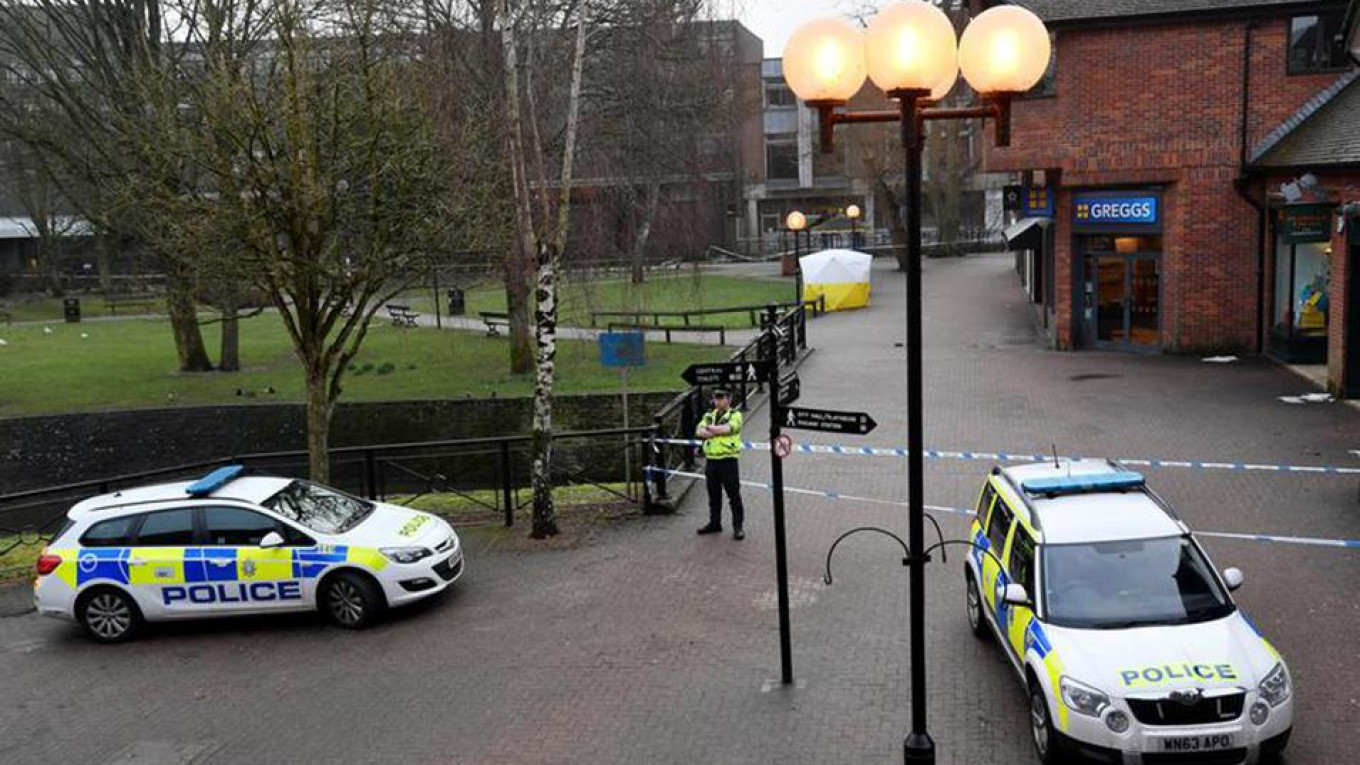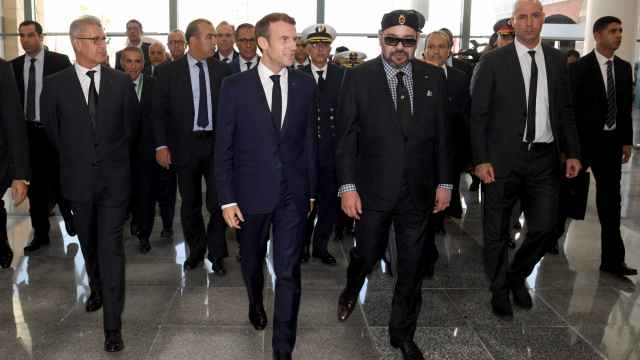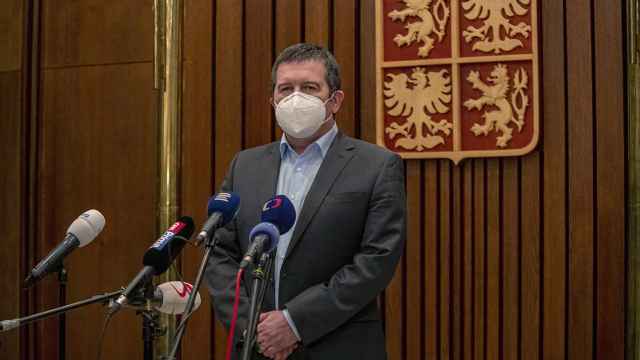It is still unknown whether Sergei Skripal, a Russian military intelligence officer turned British espionage asset, was poisoned in his new home town of Salisbury.
It is hardly surprising, though, that this is the suspicion. It’s also not surprising that Moscow’s hand is being seen in the incident, given not only the murder of defector Alexander Litvinenko in London in 2006, but a string of mysterious deaths in recent years.
It seems to reflect a breakdown in the old etiquette of espionage, not only foreshadowing an even more vicious "shadow war" to come, but also challenging Western states to come up with new ways to respond to and deter these kinds of outrages.
Skripal, a colonel in the GRU military intelligence service, was arrested in Moscow in 2004 and convicted of having been a British spy. He was sentenced to 13 years for high treason, but later swapped for Russian agents and settled in the UK.
In itself, former spies are not usually considered targets, according to the old rules. It’s assumed that they will be debriefed, squeezed of all remaining information of value they may possess, but typically they then semi-retire into grateful obscurity, their knowledge increasingly dated.
Skripal was not just any spy, though, but a former insider, a GRU officer who allegedly blew the cover of some 300 Russian agents. Although Moscow has a particular grudge against former insiders who turn, that is not in itself usually enough to go to the effort and potential risks of "wet work" — a killing, in their slang.
If Skripal was still actively working with British intelligence — as Litvinenko had been — then that might have been enough to mark him for murder. However, this is still a departure from old practices.
This may say less about Skripal, and more about the changing culture and complexion of Russian espionage. Traditionally, this is the realm of the GRU and its "civilian" counterpart, the Foreign Intelligence Service (SVR).
The GRU dates back to the early Soviet era, and while the SVR technically was only formed when the Soviet Union was dissolved, essentially it is just the Soviet KGB’s old espionage service, the First Chief Directorate, under a new name and logo. In other words, these are long-standing services with organisational cultures that still largely embody the old rules of the intelligence game.
Increasingly, though, the Federal Security Service (FSB), the main domestic security agency, is also active abroad. This is a very different service, one of political policemen used to operating without rules, with impunity, and under the benevolent protection of the Kremlin.
They neither know nor care about the old etiquette. Their service is powerful enough not to care if its adventures cause problems for the foreign ministry and, indeed, unlike the GRU and SVR, many FSB networks do not even operate outside embassies.They are often amateurish, but aggressive.
Given the carnivorously competitive world of Russian security politics, though, they have also triggered something of a race to the bottom. The other services, unwilling to be portrayed as conservative or hesitant, have had to adopt a similar wartime culture, in which it is better to take a chance than miss one, and in which risks are there to be taken.
We have seen Chechens gunned down in Turkey and Austria. We have seen an Estonian security officer kidnapped from his own country by FSB commandos. We have seen hacks, smears, blackmail and gangsterism. And the ghost of Litvinenko still rightly haunts Anglo-Russian relations.
It is in this worsening environment that it is so easy to assume Skripal was deliberately poisoned. By no means all the seemingly-mysterious deaths of Russians abroad have been assassinations.
People do die unexpectedly, especially unhealthy and overweight Russians. Furthermore, even where foul play was at work, it could have been the result of criminal, not intelligence work (the two worlds overlap, but they are not the same).
This increasingly bloody toll also represents a challenge to the West. As the old etiquette breaks down, so too the old responses are patently ineffective. A sternly-worded rebuke to the ambassador, some spook-diplomats kicked out of the country, questions in parliament; none of these have any meaningful traction these days.
So this case is also an invitation to London and the wider West to reconsider its responses and ditch old habits that Moscow well understands. Responses ought to be meaningful, and striking, and that is likely to mean unexpected.
It is time to be determined, imaginative and asymmetrical. Determined, to accept the inevitable tit-for-tat responses. Imaginative and asymmetric, in considering new ways to punish Moscow, ones the Russians have not already gamed out in advance.
This means not simply playing the diplomatic expulsion game but also looking elsewhere for moves to make and pieces to take.
Maybe this means impounding the property of Kremlin-linked figures, regardless of whether they had anything to do with this particular case. Maybe it means threatening to provide extra support to Ukraine’s military, or leaking new information embarrassing to the Kremlin.
There is a wealth of options available, and many within the government eager to be taken off the leash and allowed to be more robust and also creative in their responses. If Moscow was behind an attack on Skripal, it is long past time to use them and their ideas, and to show that there are real costs to breaking the spy game rules.
Mark Galeotti is a senior researcher at the Institute of International Relations Prague and coordinator of its Center for European Security.
The views and opinions expressed in opinion pieces do not necessarily reflect the position of The Moscow Times
A Message from The Moscow Times:
Dear readers,
We are facing unprecedented challenges. Russia's Prosecutor General's Office has designated The Moscow Times as an "undesirable" organization, criminalizing our work and putting our staff at risk of prosecution. This follows our earlier unjust labeling as a "foreign agent."
These actions are direct attempts to silence independent journalism in Russia. The authorities claim our work "discredits the decisions of the Russian leadership." We see things differently: we strive to provide accurate, unbiased reporting on Russia.
We, the journalists of The Moscow Times, refuse to be silenced. But to continue our work, we need your help.
Your support, no matter how small, makes a world of difference. If you can, please support us monthly starting from just $2. It's quick to set up, and every contribution makes a significant impact.
By supporting The Moscow Times, you're defending open, independent journalism in the face of repression. Thank you for standing with us.
Remind me later.








